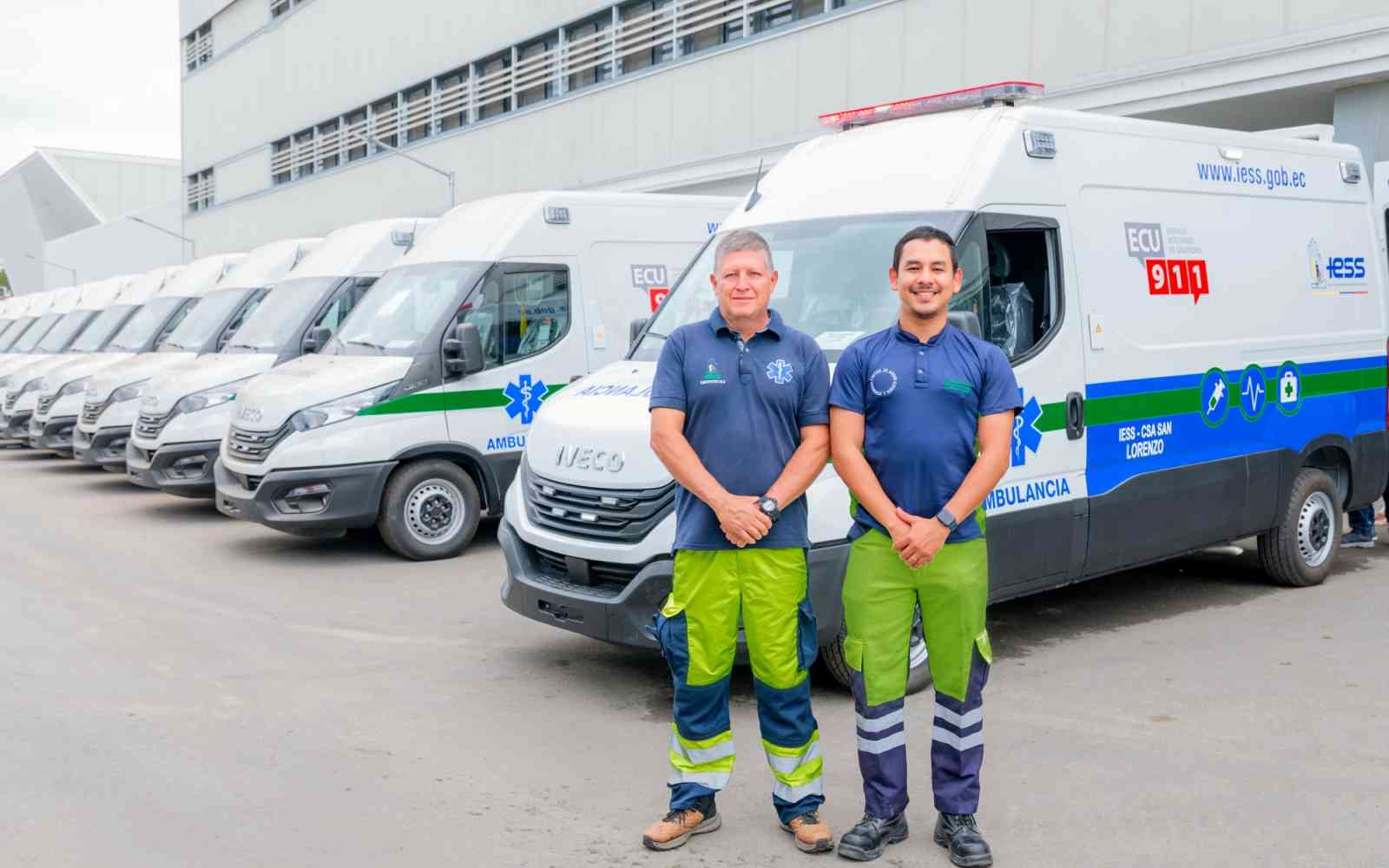The United Nations Office for Project Services (UNOPS)
Advancing emergency health services across Ecuador
UNOPS and Ecuador’s Ministry of Public Health are strengthening healthcare in the country through advanced life support ambulances.
This article was originally published on 20 October 2023 and updated in March 2025.
Latest updates
March 2025
- A total of 188 ambulances have been procured under this project, including two additional units made possible through savings generated by UNOPS’ efficient and transparent procurement processes – marking the successful completion of the deliveries.
26 August 2024
- 49 additional ambulances were handed over during a ceremony in the port city of Manta in the presence of the President of Ecuador and the Minister of Health. This marks the most significant delivery under the project – bringing the total number of ambulances delivered to-date to 171.
24 June 2024
17 additional ambulances were delivered in the Guayas province during a handover ceremony attended by the President of Ecuador, Daniel Noboa Azin and Ecuador's Minister of Health, Manuel Antonio Naranjo Paz y Miño.
To date, 122 ambulances out of 186 have been delivered under this project.
9 May 2024
An additional 24 ambulances have been delivered in Ecuador’s Santa Elena province at a handover event attended by Ecuador’s Minister of Health, Franklin Encalada.
- UNOPS has procured 105 ambulances under this project. The ambulances will be allocated to the Bolívar, Guayas, Manabi, Los Rios, Quito and Salinas regions of the country.
23 January 2024
UNOPS and the Ministry of Public Health have delivered 46 new ambulances in 9 zones in Ecuador.
To date, 71 ambulances have been delivered under this project to improve emergency health services for people across the country.
Important work in Ecuador with @Salud_ec on emergency services. 100+ advanced life support ambulances now improving access to much needed healthcare. https://t.co/23zkP7xAom
— Jorge Moreira da Silva (@UNOPS_Chief) May 10, 2024
In Ecuador, limited and outdated ambulances can restrict emergency health services across the country. In remote areas, the complex geography and long distances to the nearest health facility can make it difficult for patients to urgently access hospitals.
To enhance emergency health services and pre-hospital care, UNOPS is working with Ecuador’s Ministry of Public Health to procure and deliver 186 advanced life support ambulances across Ecuador’s 26 provinces. The new ambulances will improve access to critical health services for vulnerable groups – particularly those living in remote areas – including indigenous communities, immigrants, pregnant women and the elderly.
According to Ecuador’s Ministry of Public Health, the new ambulances will support approximately 10 million people in the country. Each ambulance will be equipped with 33 types of advanced life support equipment and provided with maintenance and technical support for the next two years.
"These ambulances will help provide life-saving primary healthcare to vulnerable and remote communities, and support better healthcare for the people of Ecuador,” said Mónica Siles, Director of the UNOPS Multi-Country Office in Peru.
Under the project, nursing and paramedic staff will be trained on the use of the new life support equipment – including defibrillators, oximeters, resuscitation kits and diagnostic kits. Ambulance drivers will also receive training on vehicle maintenance and safe driving practices.
“I want to thank the Ministry of Health for the procurement and delivery of these new advanced life support ambulances since this new equipment will allow our medical services to care for obstetric, trauma, clinical and pediatric emergency patients,” said Carolina Romero, Hospital Care Unit paramedic in the Santo Domingo de los Tsáchilas province.
Healthcare workers and paramedics have welcomed the new ambulances as an important step towards enhanced emergency care and the safer transportation of patients.


“Thanks to these ambulances, we can ensure the optimal transportation and transfer of a patient from the emergency site to a hospital [or] care centre,” said Dr. Liset Moreira, Medical Assistance Officer for Emergency Service at the Regional Health Hospital of Manta.
This project supports the government of Ecuador’s Ten-Year Health Plan 2022-2031, aimed at promoting equitable health services and timely medical care.













